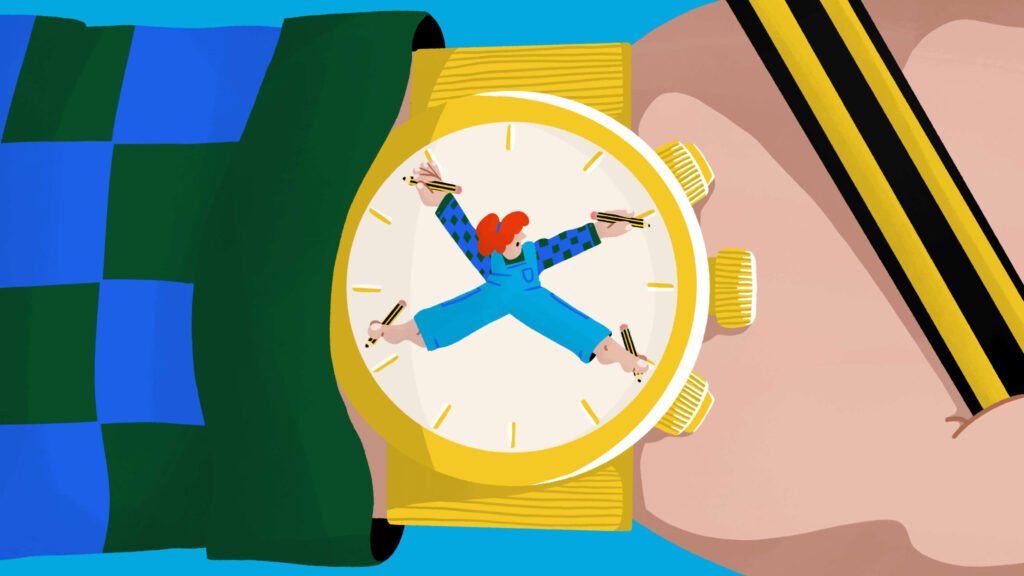If you spent any time on freelance Twitter in the final week of March, you might have noticed that one conversation was dominant amongst writers that work forthemselves: ALCS day was upon us, and some had found their resultant royalty cheques looking significantly healthier than others.
If you’re new to the concept of ALCS, here’s the topline: ALCS, aka the Authors’ Licensing and Collecting Society, is a not-for-profit member organisation that works on behalf of freelancers,tracking down royalties that they are owed through secondary uses of their work, and ensuring that the money finds its way to their bank account.
At the end of March every year (this year ALCS day was the 22nd, although the date varies), freelancers receive the royalties that have been collected over the past year… and then go on Twitter to talk about it, with some actively rejoicing at the amount of passive income that they’ve pulled in.
And if you think that sounds too good to be true, we promise you that it isn’t – in fact, ALCS has netted more than £500 million for its members over the past four decades.
On ALCS day this year there was a lot of talk about how easy it is to sign up and thus give a good chance of pulling in some passive income each March – but there was also a lot of confusion about how the system works. Here, we’ve done a bit of digging in order to (hopefully) demystify the process…
For the sake of brevity, in this piece we are concentrating purely on journalistic works – ALCS works differently when it comes to books and illustrations, so the practicalities outlined below shouldn’t be relied on if you’re an author or an artist. If that’s the case and you want more information, we’d recommend contacting ALCS directly.
Be aware of eligible publications
Although you can never know whether your work will be reused, there are certain rules that those looking for guidance on where to pitch might want to consider. Newspapers and their supplements, for example, are not eligible. Print journals are, and their corresponding websites might be too – although it’s important to note that you can only claim for a piece once, even if it appears both in print and online.
Consider your niche interests/expertise
Because the royalties tracked down by ALCS come from secondary uses by institutions as varied as universities, schools, governments, libraries and other public bodies, the work that finds itself being reused the most is often very specific. For this reason, it’s worth being aware of this if you’ve got a particular niche. This is why, come ALCS day, you might notice that those who write for journals or trade magazines may appear to be pulling in the biggest royalty cheques.
Track every time you have something published
It’s generally a good life skill to stay on top of all your admin, whether it’s unpaid invoices or expense claims – as a freelancer, you hardly need us to tell you that. The same applies when it comes to ALCS. To avoid scrambling around looking for the details of a commission you filed a year ago, and so you don’t forget anything, log your work in the ALCS system as it’s published – don’t rely on the fact that ALCS gives you three years to register a piece.
“We definitely hear on Twitter that people are spending a couple of days before the deadline doing it,” Esther Jones, who works in the ALCS communications team says. “But it is something people can log at any point in their online account.”
Having said this, do go back to make sure you haven’t forgotten anything – a mini audit of your work over the past year might well throw up a commission that you’d filed and immediately forgotten about.
Check that the publications you write for are based in the UK
A small point, but a potentially time saving one: as only UK publications are eligiblefor ALCS royalties, check where your publications are based before you try to submit pieces to the system.
See if the websites you freelance for have an ISSN
There is alot of talk about how ALCS only collects royalties for print publications, and whilst this is the majority of what they do it isn’t the whole story. If the websites that you write for have ISSNs, your work for them will also be eligible. There is information here on the kinds of websites that might have ISSNs, but asking your editors or publishers the question is probably the best way forward.
Work out if you can join for free
Members of certain organisations don’t have to pay for ALCS membership, which could save you a few quid. These organisations include:
– The National Union of Journalists
– The Writers’ Guild of Great Britain
– The British Association of Journalists
– The Chartered Institute of Journalists
It’s also important to remember that your £36 joining fee isn’t taken upfront – in fact, ALCS will only take payment when your first royalty cheque comes in. Think of it as no win, no fee, with entirely nothing to lose. Esther says: “If we don’t collect anything for you, then you won’t have to pay anything. So, there’s essentially no harm in signing up.”
Know the dates
As with anything, dates are key when it comes to ALCS. 30th November is the date that all articles should be logged, after which you should see payments in March and September.
Remember that you have three years to log your pieces, though, so if you forgot about that niche editorial you worked on for a trade magazine two years ago you haven’t missed your chance – you’ve still got time to log it in the system.
Don’t rely on it too much
With all the above points in mind, it’s important to know that you cannot realistically game the system when it comes to ALCS. Although the above points may bolster your chances of increasing the size of your cheque, there are definitely no guarantees.
ALCS tell us that within the article scheme, every claim that is made is paid once, provided that the magazine or journal is available to copy. This means that even if a piece of work is not used, royalties can be received based on its availability to copy, rather than whether it actually is.
The amount of royalties received can vary hugely, and there are various factors at play: how many members claim for articles in that particular cycle, word count, the number of articles claimed for, and the category of the articles submitted (business, Higher Education, etc. – as some categories generate more money than others.)
The team explains that an article payment is always guaranteed, as long as the submitted article has been published in a UK publication with a valid ISSN number.
Esther adds: “We have membership researchers who will go out and track people down that we’re holding money for. And most people ask, “is this real?” It’s very difficult to explain where exactly we collect the money from, because it’s such a complicated process.”
Jessica Bateman, a freelance journalist who has received royalty cheques in the thousands, agrees: “There’s no magic secret or trick to getting money from ALCS,” she says. “It’s all about how your work is used by people after it’s published, and that’s not something that you can predict or have any control over.”
The main takeaway? Be aware of ALCS, know how beneficial it can be, and make sure you take advantage of it – but even if your work looks like it ticks all the boxes, know that there are very few certainties. Sometimes, the beauty really is in the mystery, and maybe also in a little surprise cash at the end of a long year.




